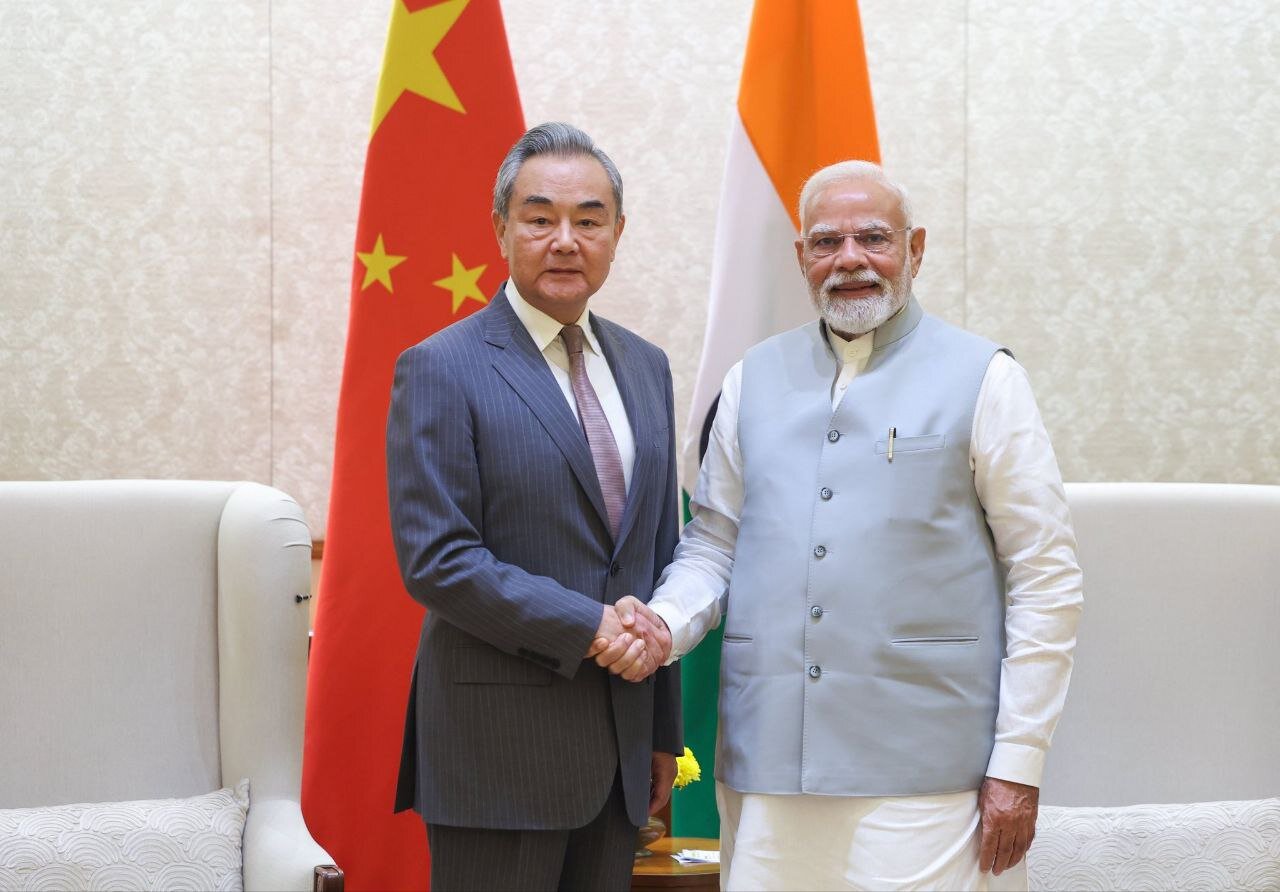India and China signal diplomatic thaw as Wang Yi meets Modi

Chinese Foreign Minister Wang Yi’s two-day visit to New Delhi has underscored a renewed commitment by both Beijing and New Delhi to place their relationship on a constructive path.
Meeting with Prime Minister Narendra Modi on Tuesday, Wang conveyed a personal message and invitation from President Xi Jinping for the upcoming Shanghai Cooperation Organization (SCO) Summit in Tianjin.
“Since my meeting with President Xi in Kazan last year, India-China relations have made steady progress guided by respect for each other's interests and sensitivities,” Modi said in a statement on X.
He added, “I look forward to our next meeting in Tianjin on the sidelines of the SCO Summit. Stable, predictable, constructive ties between India and China will contribute significantly to regional as well as global peace and prosperity.”
Wang’s engagements in Delhi began on Monday with talks alongside External Affairs Minister Dr S. Jaishankar, covering bilateral, regional, and global issues ranging from trade to river data sharing. Both sides emphasized the need to address security concerns, with the Indian statement noting, “Minister Wang Yi concurred that countering terrorism should be given the highest priority.”
Earlier, Wang told reporters that India and China should view each other as “partners” rather than “adversaries or threats,” adding that relations were on a “positive trend” towards cooperation.
His meeting with National Security Advisor Ajit Doval focused on de-escalation measures and boundary affairs, with Wang remarking, “We are happy to share that stability has now been restored at the borders. The setbacks that we faced in the last few years were not in our interest.”
This diplomatic thaw follows incremental steps since last year to reduce tensions along the disputed Himalayan border, including agreed patrolling protocols and the resumption of religious pilgrimages into Tibet. India has restarted visas for Chinese tourists, and discussions are underway to reopen border trade routes.
The revival in bilateral warmth also comes against the backdrop of Washington’s unilateral tariff measures and sanctions that have unsettled global trade flows.
Earlier this month, U.S. President Donald Trump — after warning of possible secondary sanctions over India’s continued purchases of discounted Russian oil — sharply increased duties on Indian goods, drawing criticism in Delhi as “unfair and unjustified” and prompting Beijing to denounce Washington’s “coercion and pressure” amid its own defense of energy trade with Moscow.
Both Asian powers have expressed support for a multipolar global order, with Jaishankar stating, “We seek a fair, balanced and multi-polar world order, including a multipolar Asia.”
Modi’s planned visit to China for the SCO Summit on August 31 will be his first since 2018, potentially marking a turning point in the trajectory of India-China relations.
Leave a Comment